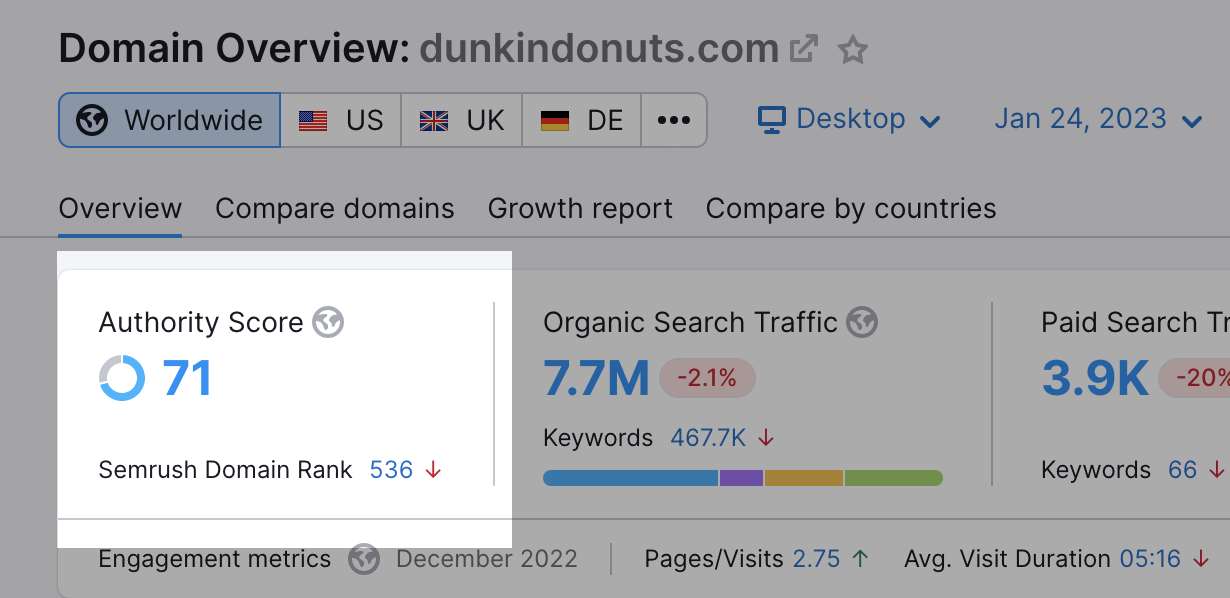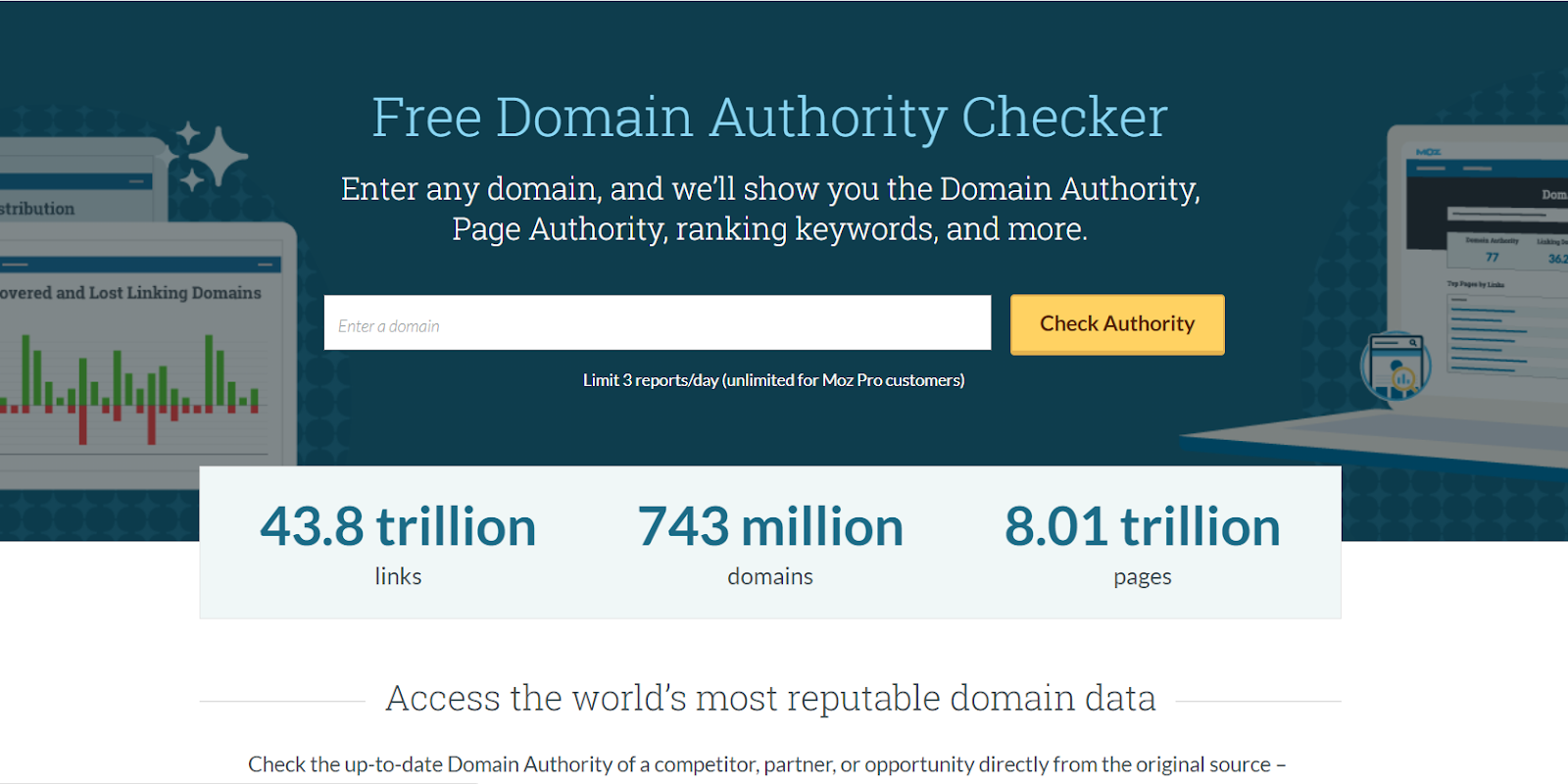

Having a strong domain authority is essential for any website looking to be successful. The higher the domain authority of your website, the more likely it is to rank higher on search engines and get more visibility.
This article will provide expert insights into the key factors that can help to increase your domain authority, such as increasing visibility, building authority signals, building links, optimizing content, and analyzing performance.
With these tips, you will be sure to take your website to the next level.
When it comes to elevating your website's domain authority, key factors such as content quality, backlinks, and site structure all play a vital role. Quality content is essential for attracting organic search traffic, as well as for establishing trust with visitors.
An effective backlink strategy is also important, as it helps to boost your domain authority by driving referral traffic to your website. Having a well-structured website is also essential for providing a positive user experience and helping your website rank higher in search engine results.
Finally, optimizing your website for mobile devices is an important factor, as most web searches are now done via smartphones and other mobile devices. All of these elements are critical for boosting your website's domain authority.
One way to increase visibility and elevate your website's domain authority is to ensure that your content is properly optimized for search engine ranking. This means using popular keywords, creating relevant and up-to-date content, and following best practices for page titles, headings, image alt tags, and other SEO elements.
Additionally, it is important to create content that is shareable on social media, as this can help increase your reach and visibility.
Finally, it is important to make sure your website is secure and optimized for mobile devices, as this will help boost its overall ranking. By following these steps, you can help ensure that your website will stand out in the search engine results pages.

Acquiring authority signals is essential for elevating your website's domain authority. Authority signals refer to the ways in which search engines perceive a website's credibility and trustworthiness. They can include anything from a website's age and backlinks to the number of social shares it receives. By building up these signals, website owners can improve their domain authority and subsequently, their search engine rankings.
The most important authority signals are backlinks from reputable sources. Search engines view backlinks as a sign of trustworthiness and therefore, websites with a high quantity of backlinks will be given higher rankings. Additionally, websites that have been around for longer periods of time are also seen as more trustworthy by search engines.
Finally, the number of social shares a website receives can also boost its domain authority. It's important to remember that these social shares must be from reputable sources though. Shares from spammy or irrelevant accounts will not be beneficial for your website's domain authority.
Although building links is an important factor for elevating your website's domain authority, it is not the only one. Link building works by having other websites link to yours, which tells search engines that your website is a reliable source of information.
This, in turn, helps your website's ranking and domain authority. However, to build links, you must research and contact websites that are relevant to your niche and have authority in their own right. You'll need to create content that is valuable to the other website's readers, in the form of articles, blog posts, or even guest posts.
Doing this will encourage those websites to link to your own. You should also focus on building relationships with influencers and industry experts, as this will help you get more high-quality backlinks. Lastly, make sure that the links you get are from websites that are trustworthy and have a good reputation.

How else can you increase your website's domain authority besides building links? Optimizing content is an essential part of improving your website's authority. It means creating content that is relevant, valuable, and of high quality.
To do this, research topics to ensure you create content that is based on user intent. Also, ensure the content is concise, well-structured, and easy to read. Additionally, use appropriate keyword phrases and focus on creating content that is unique and engaging.
Finally, avoid keyword stuffing and use images and multimedia to make the content more interesting. By optimizing your content, you can help build a strong foundation for your website's domain authority.
Regularly analyzing your website's performance is an important step in improving its domain authority. It's essential to take a close look at your current metrics and objectives in order to understand where you can make improvements. To do this, track your website's performance over time and identify areas of strength and weaknesses.
Assess the quality and quantity of clicks, page views, and average session duration. Make sure your SEO and content strategies are effective by monitoring your website's organic search rankings. Additionally, consider user experience elements such as website speed, navigation, and layout.
Utilizing analytical tools can help you make data-driven decisions about strategies and tactics to optimize your website. With a comprehensive understanding of your website's performance, you can make the necessary changes to elevate its domain authority.

Yes, there are different types of domain authority that can be used to measure a website's performance. Domain authority is most commonly measured by Moz, which uses a 0-100 scale to rate websites based on their search engine rankings and overall quality. Additionally, other measuring tools such as Ahrefs use their own systems to evaluate websites. Ahrefs uses a 0-100 scale based on their own set of metrics, such as backlinks and organic search traffic. It is important to understand that different measuring tools will provide different results and that domain authority should be used as a guideline when evaluating a website's performance.
Domain authority is a metric developed by Moz to measure the online strength of a website and its ability to rank higher in search engine results. It is an effective tool for SEO professionals as it can be used to identify the potential of a website to rank for certain keywords and track progress over time. This metric can help to identify opportunities for increasing a website's visibility in search engine results and also provide insight into how competitive a website's market is. Domain authority can be used to inform SEO strategies, such as which keywords to target and how to build links.
Metrics for tracking website performance can vary depending on the website goals. Popular metrics to track include bounce rate, page views, time on page, average session duration, and conversion rate. Additionally, it's important to consider the user engagement of the website. This could include measuring social media shares, blog comments, and newsletter sign-ups. To get a better understanding of website performance, it's important to review analytics and adjust accordingly.